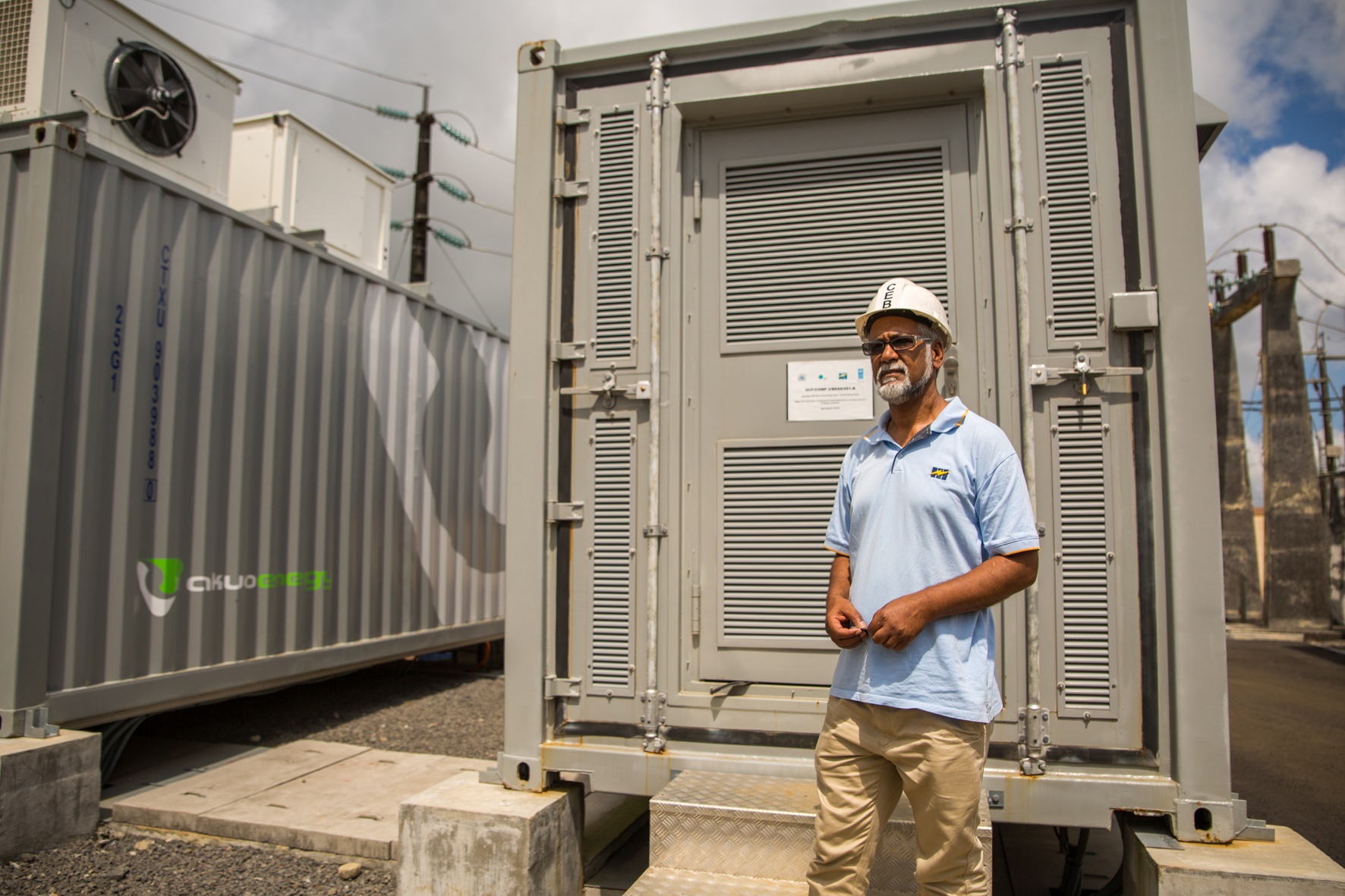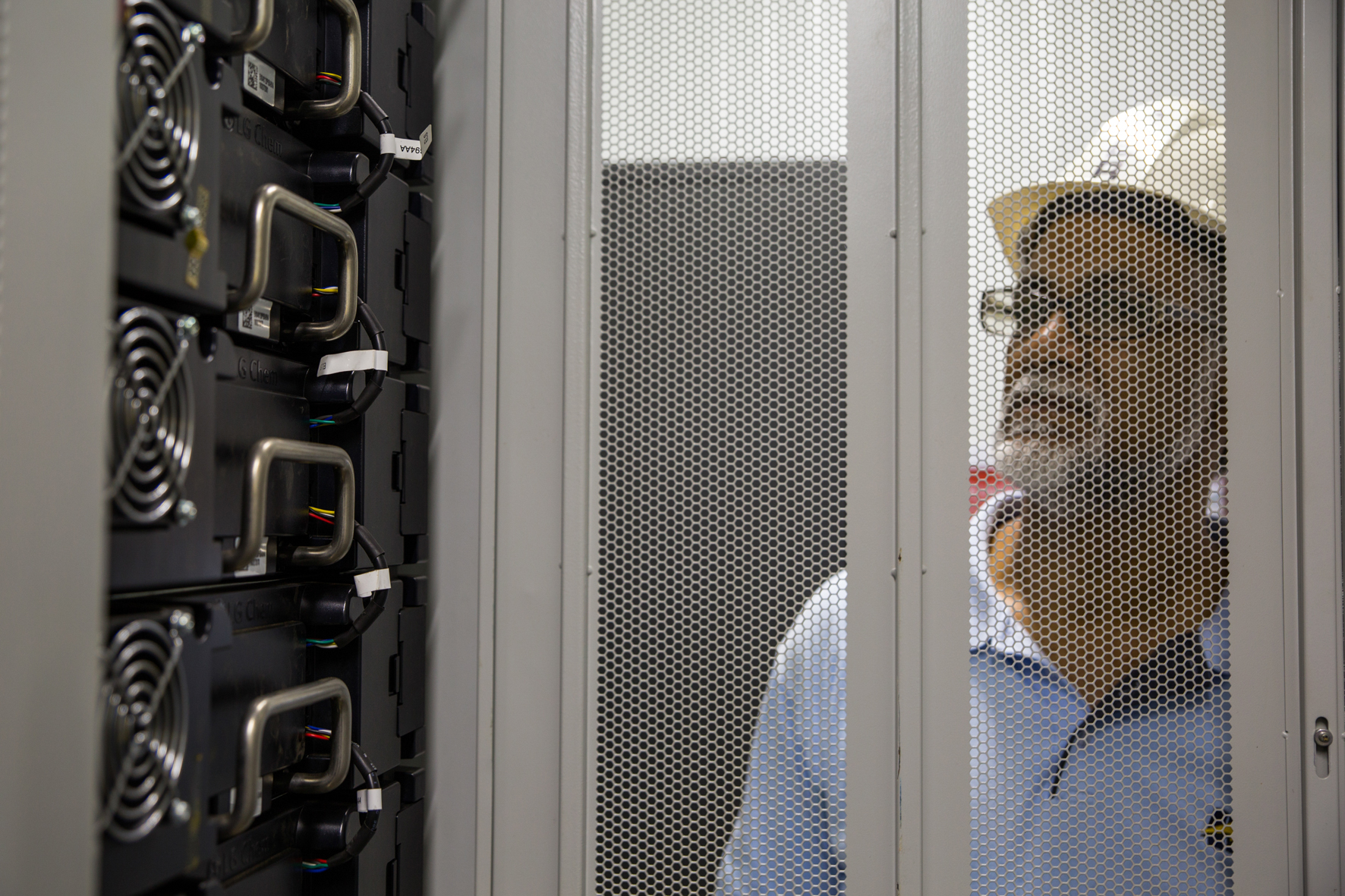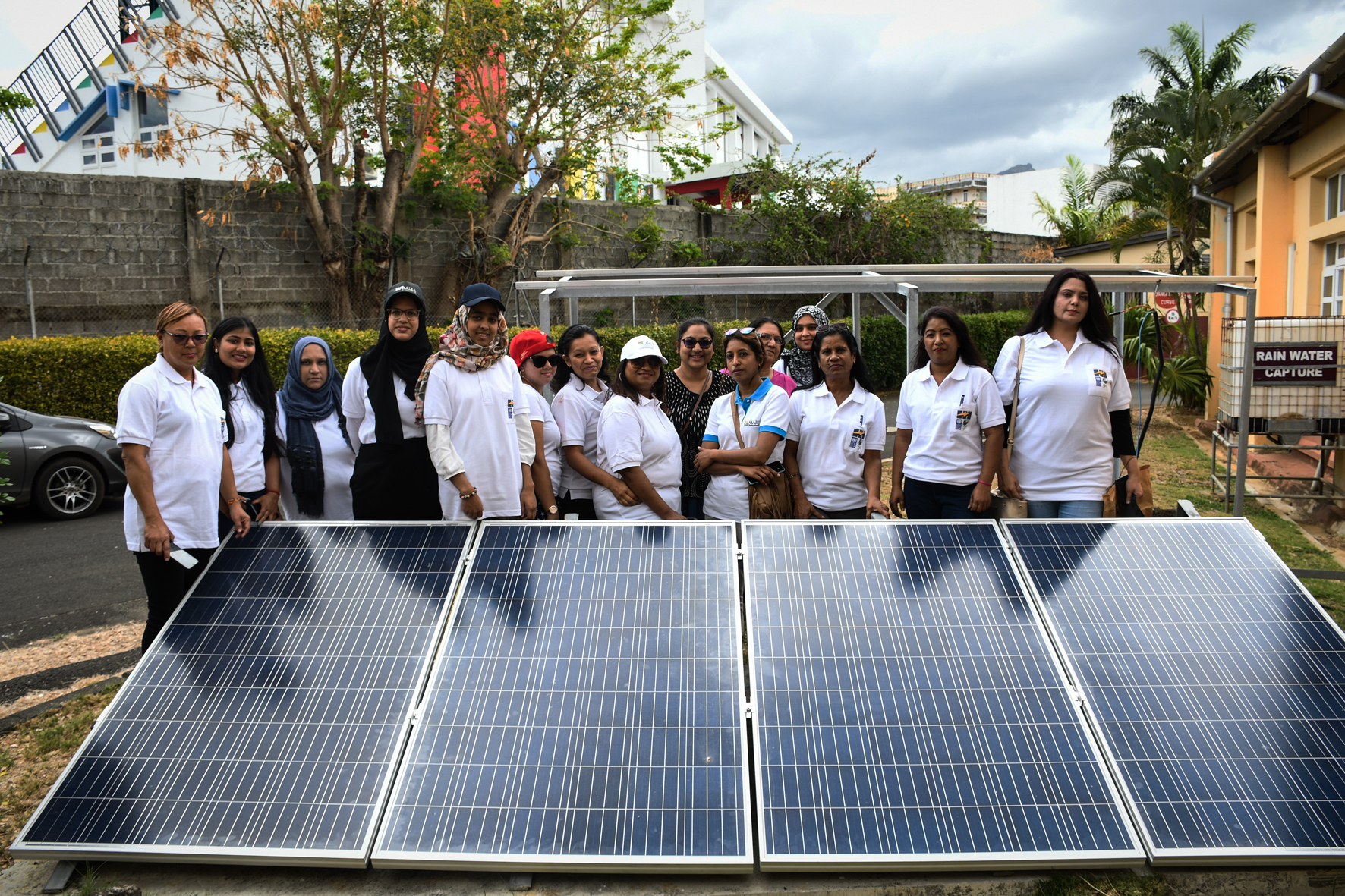Accelerating the Transformational Shift to a Low-Carbon Economy in Mauritius
Towards supplying 35 percent of the country’s energy needs with renewables by 2025
Challenges
With 84 percent of its primary energy requirements met from imported fossil fuels, Mauritius is extremely vulnerable to energy shocks. The country’s grid emission factor is extremely high at 1.01 tonnes of CO2/MWh due to the prevalence of coal (39 percent) and fuel oil (38 percent) in the electricity-generation mix. Moreover, net greenhouse gas emissions are increasing at a rapid rate of three percent per year. To overcome these issues, Mauritius has recently announced an ambitious target of 60 percent renewable energy in the electricity grid by 2030. But to use more low-emission technologies, the country must first remove the existing bottlenecks to the deployment and scaling-up of renewable energy.
Towards a Solution
The project Accelerating the Transformational Shift to a Low-Carbon Economy in Mauritius is implemented by Mauritius’s Ministry of Finance and Economic Development with other responsible parties including the Ministry of Energy and Public Utilities, the Central Electricity Board and the Outer Islands Development Corporation. The project is funded by the Green Climate Fund (GCF) through the United Nations Development Programme (UNDP), which provides execution and oversight support. Some project activities are co-funded by the South-African based Development Bank of Southern Africa (DBSA).
The project is part of a broad national strategy to reduce Mauritius’s dependence on fossil fuels, enhance energy security, contribute to climate change mitigation, improve the country’s balance of payments and create more employment opportunities in the renewable energy sector. Under the project’s first component (Institutional strengthening for renewable energy), the Ministry of Energy and Public Utilities has been receiving assistance from the GCF to develop a fit-for-purpose regulatory framework to allow the ambitious scale-up of renewable energy in Mauritius.
The project encompasses the development of the recently established Mauritius Renewable Energy Agency (MARENA) to coordinate the rapid uptake of renewable energy and to provide technical oversight and policy planning support. South-South linkages were established with other energy regulators, notably in India and South Africa, that have a similar role, i.e., with the mandate to promote renewable energy at a national level. While preliminary scoping has been done to plan South-South missions, on-site activities have been put on hold due to the COVID-19 pandemic.
In 2019, DBSA, a leading African development finance institution wholly owned by the government of South Africa, began co-financing policy development activities of MARENA. In view of the DBSA’s strong commitment to enabling Mauritius to promote investment in renewable energy, the scope of work of the contracted consultant (an energy firm from Uruguay) was expanded to ensure that, once the project is completed, MARENA will have all necessary technical tools and frameworks in place to promote the implementation of renewable energy projects. Under the project, UNDP is supporting awareness-raising and training activities on renewables and entrepreneurship, targeting in particular women, who are statistically underrepresented in the renewable energy sector and who have suffered disproportionately from the impacts of COVID-19.
Under the project, 4 out of 18 MW of battery energy storage systems (BESSs) have already been installed. Once the full 18 MW of BESSs are installed, the electricity grid will be able to accommodate 125 MW of intermittent renewable energy. Once the grid’s absorption capacity has been enhanced, the project will also provide partial grants for low-income households, non-governmental organizations and public buildings to meet installation and system costs of photovoltaic units (totalling 25 MW). Achieving these goals will greatly contribute to the decarbonization of the country’s energy sector and to highlight Mauritius as an example of how Small Island Developing States can use the latest technologies to promote renewables and gain access to clean-energy systems.
Contact Information
Mr. Shakil Beedassy, Project Coordinator, United Nations Development Programme (UNDP) Mauritius
Countries involved
India, Mauritius, South Africa
Nominated By
United Nations Development Programme (UNDP)
Supported By
Green Climate Fund; Government of Mauritius; Development Bank of Southern Africa
Implementing Entities
Mauritius’s Ministry of Finance and Economic Development; Mauritius’s Ministry of Energy and Public Utilities; Central Electricity Board; Outer Islands Development Corporation; UNDP
Project Status
Completed
Project Period
2017 - 2025
URL of the practice
https://www.undp.org/mauritius-seychelles/projects/accelerating-transformational-shift-low-carbon-economy-republic-mauritiusPrimary SDG
07 - Affordable and Clean Energy
Secondary SDGs
05 - Gender Equality, 09 - Industry, Innovation and Infrastructure, 13 - Climate Action
Primary SDG Targets
7.2 7.bSimilar Solutions












